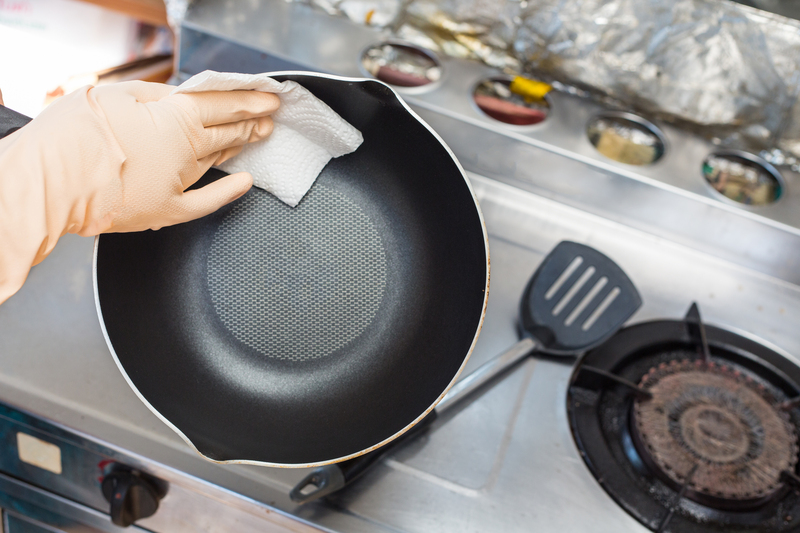Eco-efficient Cleaning Routine
Posted on 09/10/2024
The drive towards sustainability touches every aspect of our lives, from the food we consume to the way we clean our homes. An eco-efficient cleaning routine is not just a trend but a necessary shift towards preserving our planet for future generations. Adopting green cleaning habits offers numerous benefits, including reducing exposure to harmful chemicals, lowering household waste, and saving money over time. This guide will provide you with everything you need to know about incorporating eco-friendly practices into your cleaning routine.
Why Choose Eco-efficient Cleaning?
Traditional cleaning products often contain harsh chemicals that can be harmful to both our health and the environment. Ingredients such as ammonia, bleach, and phosphates can cause skin irritation, respiratory issues, and even more severe health problems with prolonged exposure. Moreover, these chemicals can contaminate water supplies and harm aquatic life when washed down the drain.
Choosing eco-efficient cleaning methods mitigates these risks. Green cleaning products typically use natural, non-toxic ingredients that are biodegradable and safe for both people and the planet. Additionally, sustainable cleaning practices often involve using less water and cutting down on single-use plastics, further contributing to environmental conservation efforts.

Essential Eco-friendly Cleaning Products
Natural Cleaners
Several household items can double as excellent cleaning agents. Ingredients like vinegar, baking soda, and lemon juice are not only effective at cutting through grime and disinfecting surfaces but are also safe and eco-friendly.
- Vinegar: White distilled vinegar is a versatile cleaner that acts as a disinfectant and deodorizer. It can be used to clean windows, countertops, and even floors.
- Baking Soda: Known for its abrasive qualities, baking soda is ideal for scrubbing surfaces and neutralizing odors.
- Lemon: The acidity of lemon juice provides natural antibacterial and antiseptic properties. Mixing lemon juice with water can create an excellent all-purpose cleaner.
Eco-friendly Brands
If DIY cleaning solutions aren't your preference, numerous eco-friendly cleaning brands offer effective products without the environmental footprint:
- Seventh Generation: This brand offers a wide range of cleaning products made from plant-based ingredients and devoid of synthetic fragrances and dyes.
- Method: Known for stylish packaging and biodegradability, Method products are versatile and effective for a variety of cleaning needs.
- Ecover: Specializing in plant-based cleaners, Ecover products are designed to minimize environmental impact while maintaining cleaning efficacy.
Implementing an Eco-efficient Cleaning Routine
Reduce and Reuse
One of the foundational principles of sustainability is reducing waste. Opt for reusable cleaning cloths instead of single-use paper towels. Microfiber cloths are particularly effective and can be washed and reused multiple times. Additionally, consider using refillable cleaning bottles as opposed to purchasing new plastic bottles each time.
Conserve Water
Water conservation is another key component of an eco-efficient cleaning routine. Avoid leaving taps running unnecessarily and use a bucket of soapy water for tasks like mopping floors. High-efficiency washing machines and dishwashers also consume less water and energy, making them a smart choice for sustainable living.
Mindful Purchasing
When buying cleaning products, look for certifications such as EcoLogo, Green Seal, or the USDA Organic seal. These labels indicate that the products meet rigorous environmental and health standards. Also, choose products with minimal packaging and aim for those sold in recyclable containers.

Eco-efficient Cleaning Tips for Different Areas
Kitchen
The kitchen is often the heart of the home and requires frequent cleaning. Avoid chemical-laden degreasers by using a mixture of vinegar and water to clean countertops, stovetops, and other surfaces. Baking soda can be sprinkled on stubborn stains and scrubbed away with a damp cloth. For fresh-smelling drains, pour a mixture of baking soda, vinegar, and hot water down the sink.
Bathroom
Bathrooms are breeding grounds for germs and mildew. Use vinegar and water or baking soda paste to clean tiles and grout. A few drops of tea tree oil can add antiseptic properties. For toilet cleaning, a combination of baking soda and vinegar left to sit for a few minutes before scrubbing works wonders.
Living Areas
Dusting and vacuuming are essential for maintaining clean living spaces. Use microfiber cloths for dusting as they trap particles more effectively than traditional cloths. When vacuuming, consider models with HEPA filters to capture small particles and allergens, providing both a cleaner home and improved air quality.
Conclusion
Transitioning to an eco-efficient cleaning routine is a worthwhile investment in your health and the planet's future. By choosing natural cleaners, purchasing eco-friendly products, and incorporating sustainable practices in every cleaning task, you contribute positively to environmental conservation efforts. The importance of adopting these practices cannot be overstated; it's a step towards a healthier home and a healthier planet. Start implementing these tips today and make your cleaning routine eco-efficient.
Latest Posts
Uncovering the Benefits of Hot Water Extraction
Save Time on Bathroom Cleaning Chores
Quick House Clean in 30 Minutes








